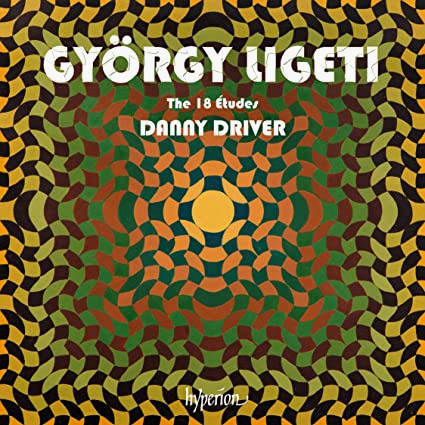
ESSENTIAL RECORDINGS

As a former piano teacher I can attest to the fact that nothing would flummox most piano students more than having to play a triplet (three notes to a beat) in the right hand against regular eight notes or quavers (2 notes to a beat) in the left hand simultaneously. At some point along their progression I would introduce them to the music of Chopin by having them learn his relatively simple Prelude in E minor, Op. 28, No. 4. Everything would go well until they all got to bar 18 where a triplet suddenly reared its ugly head. The music would come to a screeching halt there just like a train wreck. Because the human brain has a hard time with irregular patterns I would write them a simple, one-page exercise with two constantly alternating quavers in the left hand, mirrored in the right hand except for a triplet thrown in every three bars or so, and instructed them to repeat this little exercise over and over for about a week. By the following week they had trained their brains and mastered the conjunction of irregular patterns. You see, the brain doesn't remember or care which notes you are playing. It remembers which finger lands where on the keyboard, sequences of events, patterns, etc ... just like a machine!
Now take this relatively rudimentary rhythmic sequence that is a triplet (3 against 2 pattern) and multiply it many times over and you can get an idea of the monumental brain-twisting technical challenges that await a pianist within these 18 Études by Hungarian composer György Ligeti (1923-2006), who gained prominence after his orchestral work Atmospheres was used as a key musical element in Stanley Kubrick's 2001: A Space Odyssey. With titles like Désordre (Chaos), Vertige (Vertigo), L'escalier du diable (The Devil's Staircase), and À bout de souffle (Out of Breath) one can imagine the high levels of technical chicanery that await the unsuspecting pianist. Irregular patterns, cross rhythms, offset accents, both hands playing the same thing but not at the same time, split second dynamic shifts, etc ... And some of it played at breakneck speeds. For example, Désordre not only requires concentrated focus and technical control, but stamina as well. Perform it a few times over and you would be ready for a nap. And of course if all 18 Études were like that, performing the complete set in a recital could be classified as torture. Fortunately, some of them are more concerned with creating a diffuse sound world.
British pianist Danny Driver has become one of the most sought-after pianists in the world, not only fo his technical chops but for his deep musical insights as well. I felt the need to include one of his booklet note comments as it ties in well with my aforementioned "just like a machine" statement: "On a personal note, the process of preparing and repeatedly performing the Études over several years has been an exhilarating and exhausting venture. For all their technical pyrotechnics, I have always believed that they must not become an aural-visual spectacle, a Herculean tour de force that can leave audiences stunned by achievement yet left in the cold. As E D Hirsch might explain, we must not ignore the 'ghost in the musical machine' or imagine that 'the problems of interpretation will be resolved into operational procedures'. Putting the emotional and evocative power of these pieces centre stage despite their intransigent virtuosity is - for me at least - the ultimate challenge laid down by these extraordinary works."
Jean-Yves Duperron - March 2021